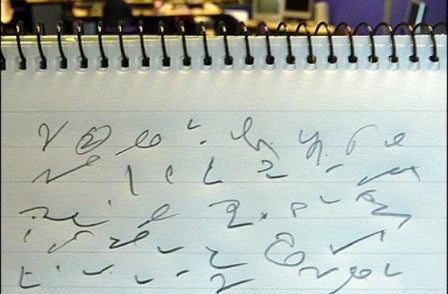
The Society of Editors has launched a new section on its website to shed some light on what editors like to see in aspiring journalists. Here are Press Gazette’s ten favourite pointers:
1. First things first, qualifications. Don’t be duped into thinking a journalism degree is any guarantee of a job. A warning too for those considering a qualification in media studies: it won’t be highly regarded by editors.
2. The Society of Editors drives home that much more important than the applicant’s academic career is a demonstrable dedication to journalism. All those clippings and showreels need to be preciously kept. The power of a meticulously-maintained blog should not be underestimated either to establish an online presence and fluent writing skills.
3. It shouldn’t be news, but editors will expect a high standard of English. Grammar, spelling and punctuation need to be perfect for any reporter’s stories to be taken seriously – and that applies to broadcasting as well as the press.
4. Accredited journalism courses are regarded kindly by the industry. The Society of Editors notes that the Broadcast Journalism Training Council, and the Periodicals Training Council both accredit courses. The NCTJ Diploma in Journalism offered by the National Council for the Training of Journalists is considered a must by most regional newspapers.
5. All editors will insist on certain core journalism skills. An understanding of media law, ethics, and the rules of regulatory systems such as the Press Complaints Commission has never been so important as in this post-Leveson age.
6. Make time for shorthand. Yes, there may be some very successful journalists out there who never bothered to learn, but in the press particularly most newspaper editors will insist that trainees have at least 100wpm shorthand. “It is an important skill which ideally all journalists should possess”, the Society of Editors insists.
7. Newspapers, magazines, television, radio and online may all require distinct skills, but media platforms are increasingly converging. Applicants who acquire skills in a number of mediums will be looked on kindly.
8. The Society is not as effusive as some individual journalists about the importance of social media – their verdict is simply that it “is increasingly important” – but there is no doubt that knowing how to track someone down on Facebook or LinkedIn, and how to best capitalise on Twitter is crucial these days.
9. The first step for securing an interview will be a CV which marks the applicant out as unique. Once again, academic qualifications won’t mean much; the important thing is to outline experience which directly reflects an interest in the media industry.
10. Finally, the interview itself. Applicants need to convince the editor that they’re the most engaged, enthusiastic and interesting person they will have interviewed that day. Editors know interviewees want a job; the expectation in return will be familiarity with the organisation and its output, knowledge of the media industry more broadly and an engagement with current affairs.
More details on the Society of Editors website
Email pged@pressgazette.co.uk to point out mistakes, provide story tips or send in a letter for publication on our "Letters Page" blog
